Number 72
- Against power, lies and war!
- The monstrous truth
- Second scramble for Africa?
- Real radical history
- Leo Tolstoy: an organic radical inspiration
- Acorninfo
1. Against power, lies and war!

The weeks since our last Acorn bulletin have seen a dramatic shift in the system’s narrative.
While the Covid story remains ongoing, it has largely been replaced by the frenzied hysteria over events in Ukraine.
It seems rather convenient that, at the precise moment that the “pandemic” scam was unravelling and the Great Resist against this global coup growing greater than ever, attention so suddenly switched elsewhere!
In fact, as is explained here, the Ukraine-Russia conflict clearly represents a continuation, by other means, of the Great Reset agenda and will help push forward all the technocrat slavemasters’ pet projects from “green” energy to lab-grown food and, of course, their holy grail of compulsory digital identities for all.
Dissident academic Dr Piers Robinson writes in a similar vein: “War in the Ukraine has significant potential to serve as a new enabling event facilitating the drive toward restrictions on liberties and the roll-out of agendas that the WEF has been waxing lyrical about for two years”.
The situation is obviously a complex one and it is important not to fall into the divisive traps being set for us.
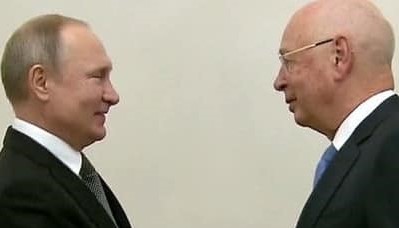 It is possible, after all, to be aware at one and the same time of NATO’s provocative expansionism and of the historical links between the militarist Putin regime and the World Economic Forum, which saw a WEF Centre for the Fourth Industrial Revolution being set up in Russia as recently as 2021.
It is possible, after all, to be aware at one and the same time of NATO’s provocative expansionism and of the historical links between the militarist Putin regime and the World Economic Forum, which saw a WEF Centre for the Fourth Industrial Revolution being set up in Russia as recently as 2021.
We would do well to remember George Orwell’s line from his masterful novel Nineteen Eighty-Four: “The war is waged by the ruling group against its own subjects and its object is not the victory over either Eurasia or East Asia, but to keep the very structure of society intact”.
As the perpetual targets and victims of the ruling group’s militarist spectacles, we, the 99.9%, need to oppose all their foul bloodbaths, under whatever guise they try to sell them to us.
If we take this principled stance, intelligently and coherently making the connection with all the other facets of this vile system, then the war in Ukraine will not undermine our Great Resist, but strengthen and amplify it!
We can stand tall and proud and declare ourselves to be against everything that the murderous and manipulative global billionaire class represents.
We will not rally around any of the flags they try to hand us. We will not be herded like sheep into the pens they have prepared.
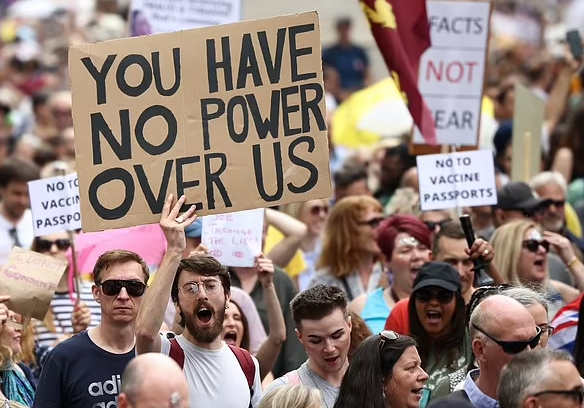 Our opposition comes from beyond their stage-managed world, from outside the manufactured reality they pump into our minds with their endless brain-rotting propaganda.
Our opposition comes from beyond their stage-managed world, from outside the manufactured reality they pump into our minds with their endless brain-rotting propaganda.
Our resistance surges up from below and is directed against those above who have trampled all over us for far too long.
This is, indeed, the powerful message from the Zapatista movement in Chiapas, Mexico, whose emergence in 1994 in opposition to the North American Free Trade Agreement (NAFTA) inspired the mighty anti-globalisation movement only broken by 9/11 and the subsequent “war on terror”.
On Sunday March 13, they converged on the city of San Cristobal de las Casas, in their biggest demonstration for many a year, to declare their opposition to both the Russian invasion of Ukraine and NATO imperialism.
They declared: “There are big capital interests at stake, on both sides. As Zapatistas, we do not support one state or another, but those who fight for life against the system”.
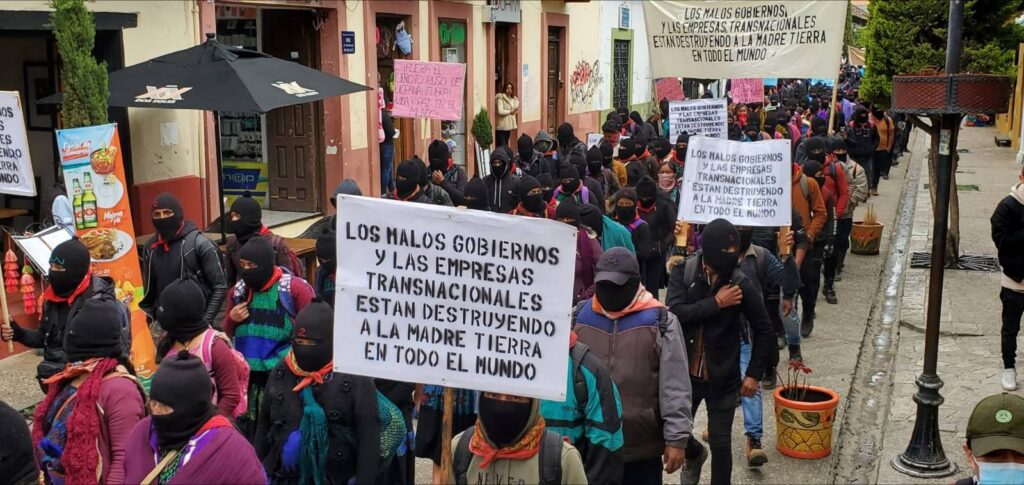

It is hard to fully grasp the sheer monstrosity of the system under which we live.
Most people simply cannot imagine that anyone could deliberately inflict untold misery and death on others, purely in pursuit of their own selfish goals.
Instead, even when they are not happy about what has happened, they cling to the semi-reassuring notion that it must have been some kind of mistake, or accident, the unforeseen outcome of a collision of social circumstances or geopolitical forces for which nobody in particular could be held responsible.
They consider it outlandish to suggest, despite the abundant evidence, that our own ruling clique has created, funded and trained terrorist groups to attack its own populations so as to frighten them into cowed obedience.
They do not think it likely for a fake “pandemic” to be sold to a global public in a pre-planned and co-ordinated fashion in order to advance a certain nefarious agenda, with the vast and irreparable suffering caused by this scam regarded as acceptable collateral damage.
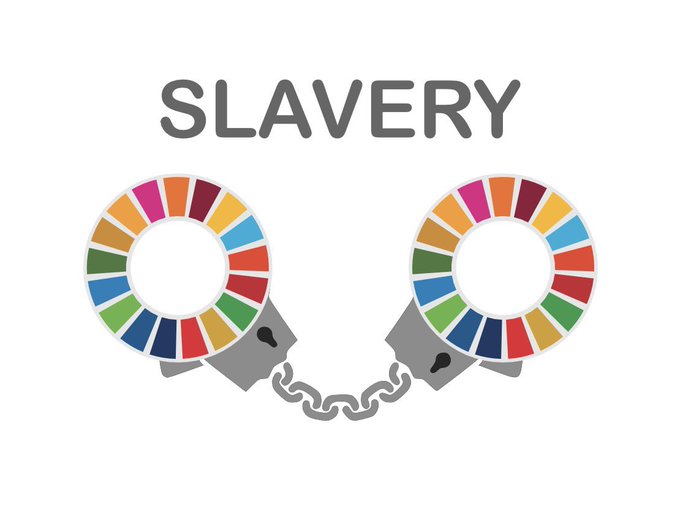 They struggle to see how it could really be true that the social and environmental goals and solutions offered to us by virtue-signalling “do-gooders” are nothing but lies, Trojan horses for yet more exploitation and destruction.
They struggle to see how it could really be true that the social and environmental goals and solutions offered to us by virtue-signalling “do-gooders” are nothing but lies, Trojan horses for yet more exploitation and destruction.
It is impossible for many folk to imagine that nightmarish military conflicts costing thousands, if not millions, of innocent lives, could be schemed up behind the scenes and sold to the public on false pretences.
They cannot believe any of this because they, like most of us, fall into the “mostly good” category of human being, tripping and stumbling our way through life trying not to cause too much harm to others and still feeling uneasy, years later, about the times when we did not meet our own moral standards.
But the powerful individuals who pull the strings in this world are not like us and therefore behave in ways which we cannot begin to fathom.
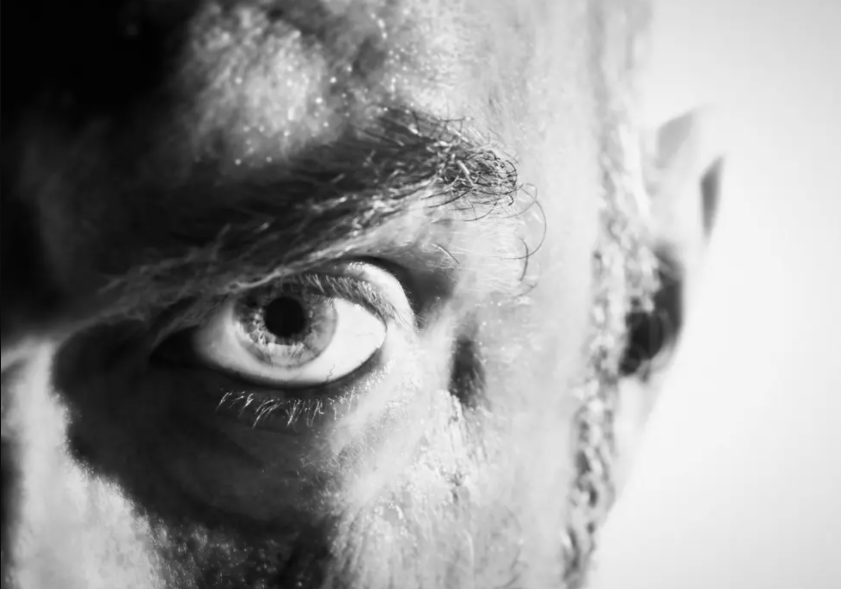 They are psychopaths, utterly lacking in empathy for their fellow humans and addicted to the taste of blood and power.
They are psychopaths, utterly lacking in empathy for their fellow humans and addicted to the taste of blood and power.
In their vile arrogance, they imagine themselves better than all the little people, all the peasants, all the nobodies and failures over whom they merrily trample in their quest for yet more wealth and glory.
Their sneering sense of superiority fuels their behaviour. They see themselves as the glorious end product of neo-Darwinian “dog eats dog” evolution, the “fittest” who are destined to survive and prosper at the expense of the despised masses.
In truth, of course, the opposite is true. These liars and manipulators, these mass-murdering mafiosi, represent the very worst of humanity.
Only in their own inverted and amoral view of the world do the ruthless and greedy occupy any kind of high ground. They are the lowest of the low.
But as long as we continue to see the world from their perspective, which they present to us as the one and only truth, we will not be able to grasp this.
 We need to step right out of the picture they have painted for us, in which we will only ever be the background to the triumph of their own twisted will.
We need to step right out of the picture they have painted for us, in which we will only ever be the background to the triumph of their own twisted will.
The first thing we obviously have to do is to stop listening to and believing their lies, refuse to base our understanding of reality on what they tell us, decline to take “sides” in the gruesome games they devise to further divide and control us.
We also have to shake ourselves free from the language they use and all the assumptions this brings with it. Enough of their “economy” and “growth” and “security” and “progress”! These are all just mislabelled facets of their ongoing domination.
As we strip away the fake reality they have painted, we will ditch all kinds of previously unchallengeable “truths”.
No, we do not really have a “moral” duty to spend our lives working for the profit of the ruling class, just in order to live and eat and breathe!
No, our children do not belong to them and we do not have to hand them over for obligatory slave-think indoctrination or for experimental drug injection!
No, we do not “need” their infrastructures in order to live our lives and we certainly do not need “protection” from those who themselves represent by far the greatest threat to our well-being!
Eventually, after layer after layer of artifice has been peeled away, we will see the horrible truth about the psychopathic mafia and the physical and psychological slavery they have imposed on us for so long.
Once we have understood this, we will all know what to do next.
3. Second scramble for Africa?
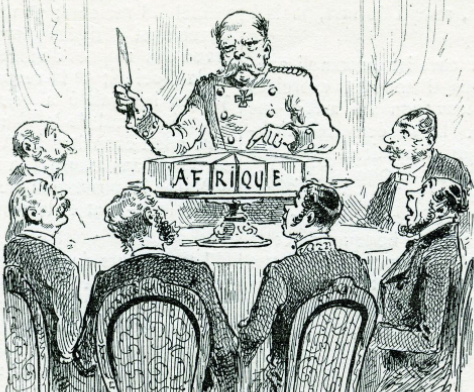
Shared from the No Deal for Nature newsletter, March 2022.
Is a second scramble for Africa on the cards?
Going by the conservation industry’s comments at a 2019 event, it would appear so!
“Nature can provide great economic benefits, especially in Africa, which has the greatest concentration of natural resources in the world.”

Nature can provide great economic benefits, especially in Africa, which has the greatest concentration of natural resources in the world. “Nature is not a cost. It is an opportunity,” said André Hoffmann, europeansting.com/2019/09/07/why…@ashoffmann @WWF_DG #NewDealForNatureandPeople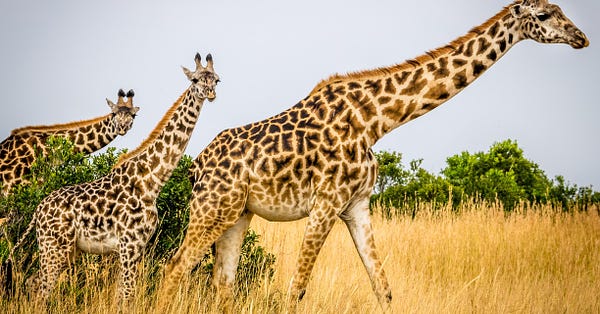
Plans for Africa became clear to Mordecai Ogada at last September’s IUCN Congress in Marseille. Read his account of events here.
The biggest thing out of Marseille was the European Union’s grand plan to capture Africa’s natural heritage through a program called NaturAfrica. Since they know that they have selected partners in Africa to whom prostitution comes easily, they drowned the announcement in noise about doubling of funding for conservation on Twitter.
IUCN Africa Protected Areas Congress postponed
The conservation industry clearly fears public criticism of its plans. Which is why shortly after independent radio show Talking Africa aired an interview with Stephen Corry, in which he exposed the many issues with Protected Areas in Africa, the IUCN decided to postpone its Congress in Rwanda where the expansion of such areas is to be discussed. If you are on Twitter, make sure to give Talking Africa a follow.
After politely countering propaganda from the event organisers, we were even blocked by the APAC Twitter account.
Further proof of how much the trillion-dollar conservation industry fears criticism!
To help shed more light on what is planned for Africa, on April 9 we are organising an online event. If you would like to be involved, please get in touch with us via email at nodealfornature@protonmail.com.
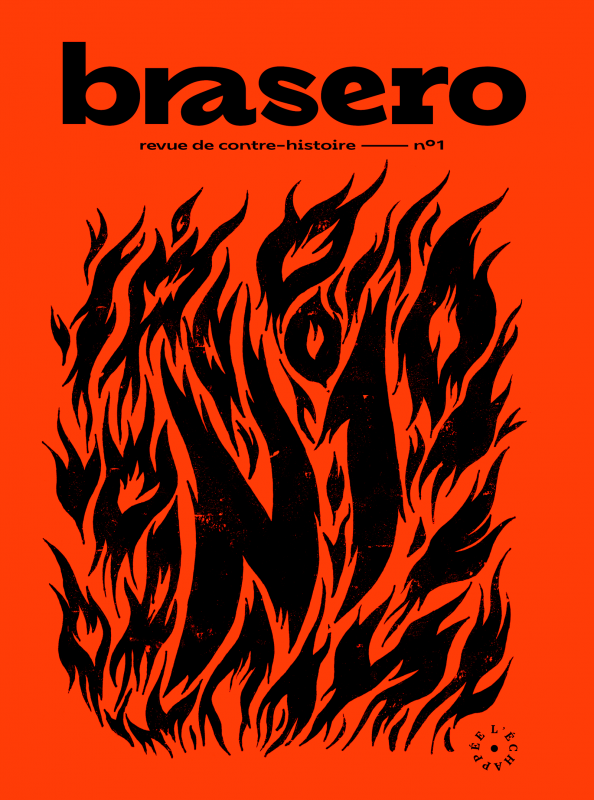
In a world of astroturf pseudo-rebellion and sterilised safe intellectual spaces, it is always encouraging to come across a source of coherent social critique. A new “review of counter-history” has been launched by l’Echappée publishers in Paris, France. Called brasero (brasier) it offers intelligent analysis of the past whih is capable of shaping the way we understand the present and imagine the future. More information is available here and, for those don’t read French, here is a look at some the contents of this beautifully designed and illustrated 180-page radical magazine.
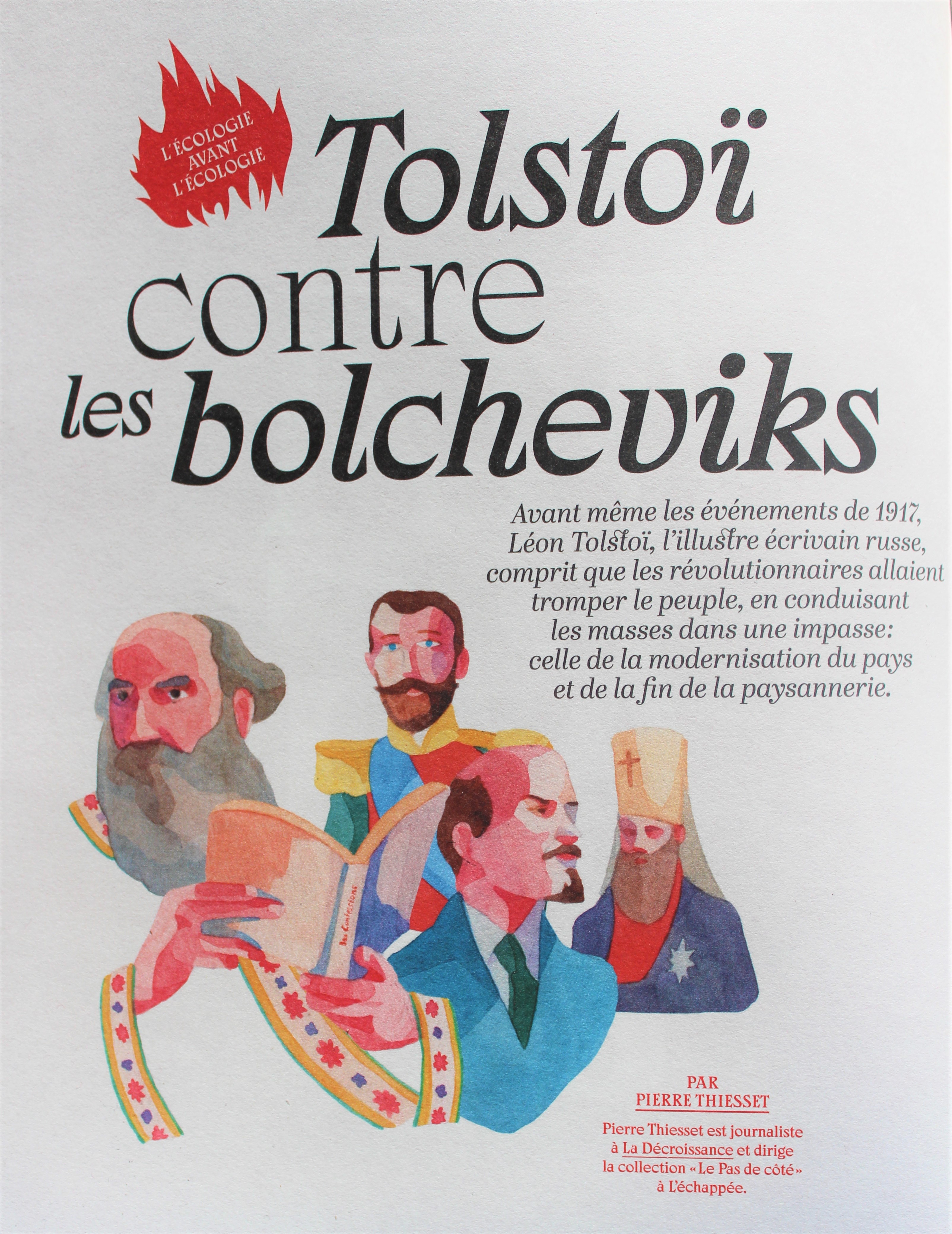
Pierre Thiesset sheds light on the conflict between the bolsheviks and the great Russian radical thinker Leo Tolstoy (see below), who died seven years before they came to power. An enormous influence on Russian peasants, helping to pave the way for the 1917 revolution, the anti-industrialist Tolstoy was regarded as a “reactionary” by Lenin and his comrades and the dislike was mutual. “The social-democrat programme brought together Tolstoy’s worst fears… He had felt that the revolutionaries were going to deceive the people by leading them into a dead end: that of the modernisation of the country and the end of the peasantry”.
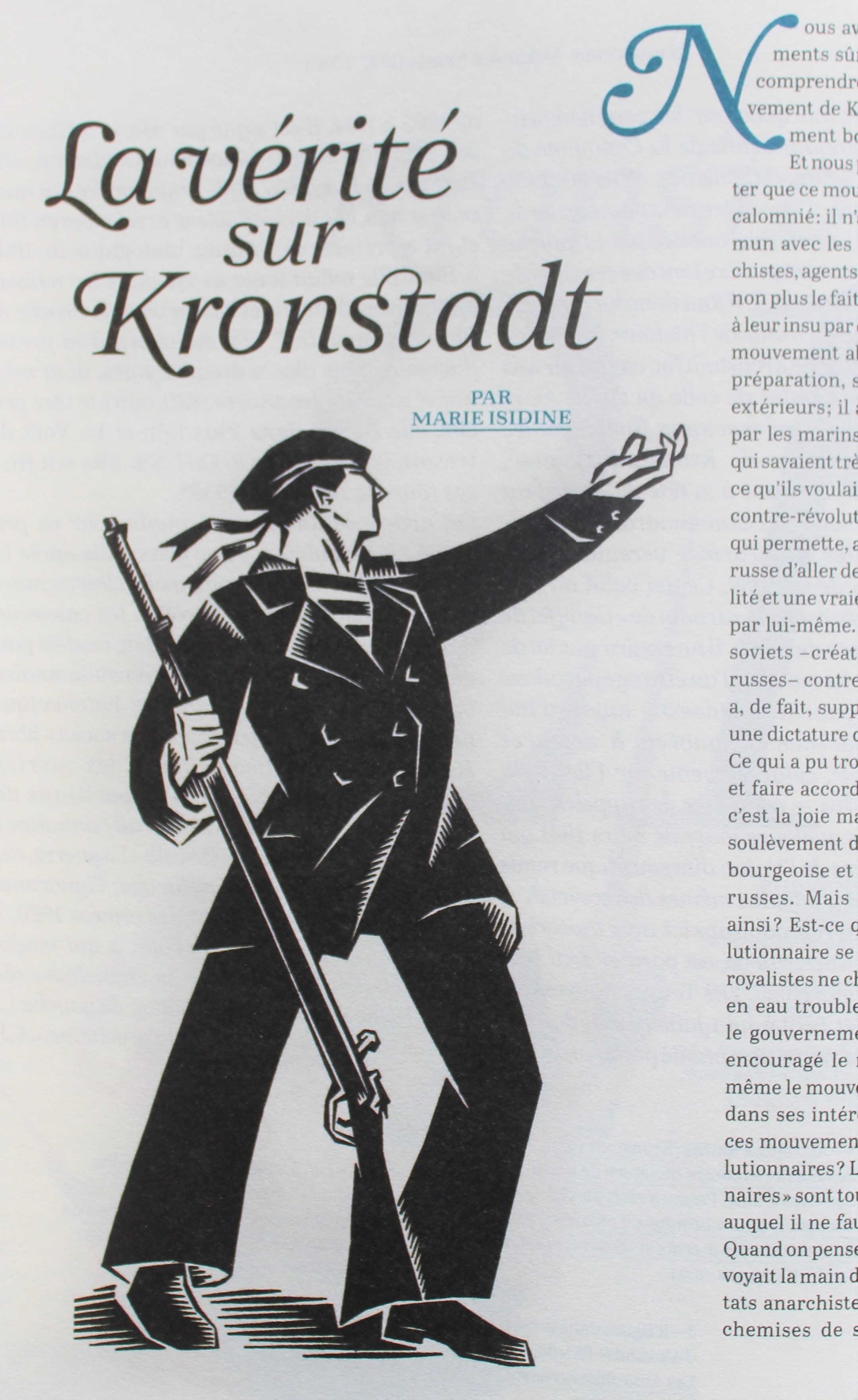
In an article written 100 years ago, Marie Isidine discusses the sailors’ uprising of Kronstadt, brutally crushed by the communists, who also smeared their radical libertarian opponents as being right-wing counter-revolutionaries. She explains: “The sailors of Kronstadt are, on the whole, anarchists. They are not to the right, but, on the contrary, to the left of the communists”. What they, and other anti-bolsheviks, wanted was a Third Revolution, a rejection of Czarist tyranny, of the previous bourgeois regime and “of the dictatorship of the communist party with its secret police and its state-capitalism, strangling the working masses like a slipknot”.
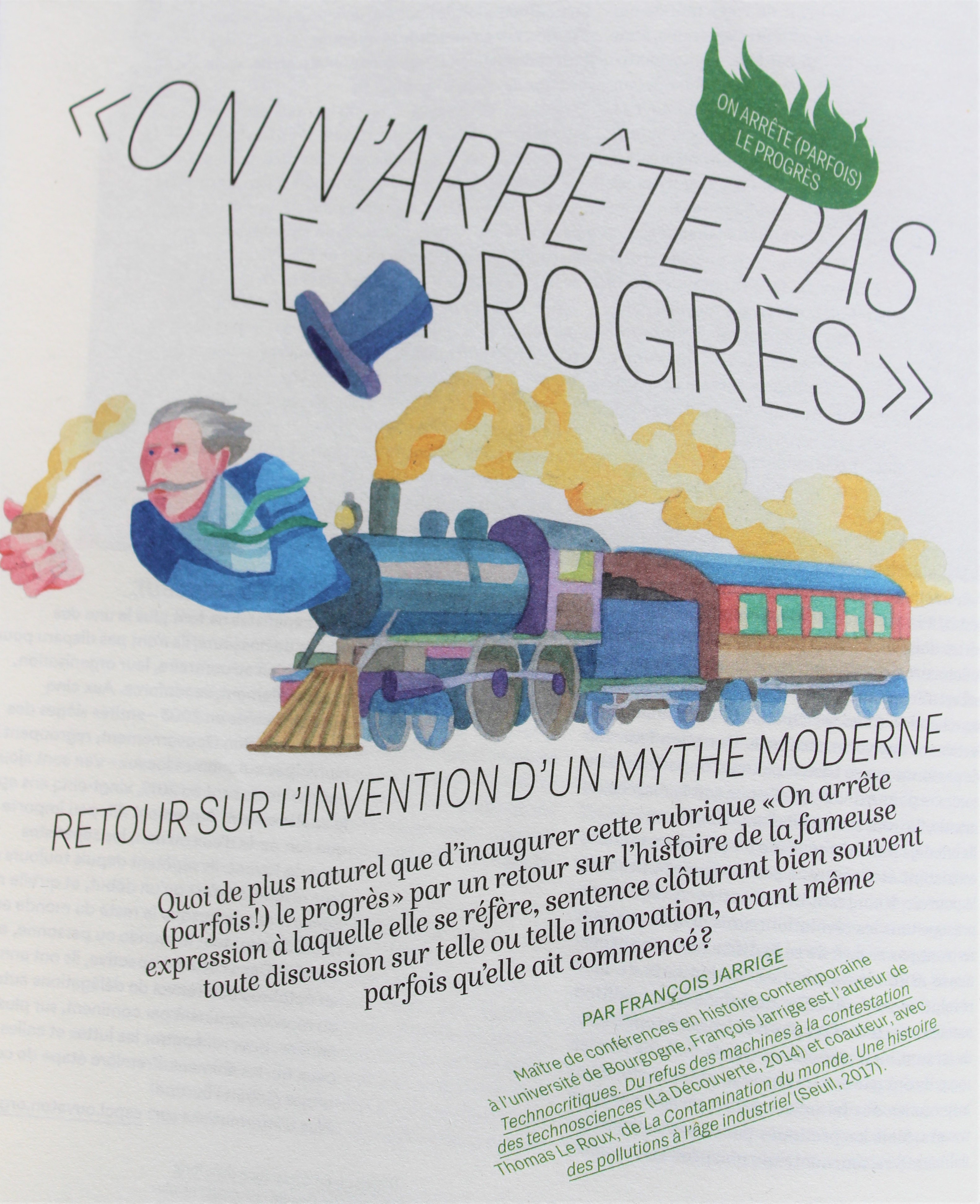
François Jarrige looks at the origins, ubiquity and falsity of the claim that “you can’t stand in the way of progress!”. He notes how the meaning of the term “progress” changed over time to become “the rhetorical tool of the installation of a new industrialist consensus” used to impose technological “growth” on a reluctant population. It provided moral and ethical cover for the spread of ruthless industrialism, depicting objectors, “those who threatened its profits”, as hopelessly backwards.
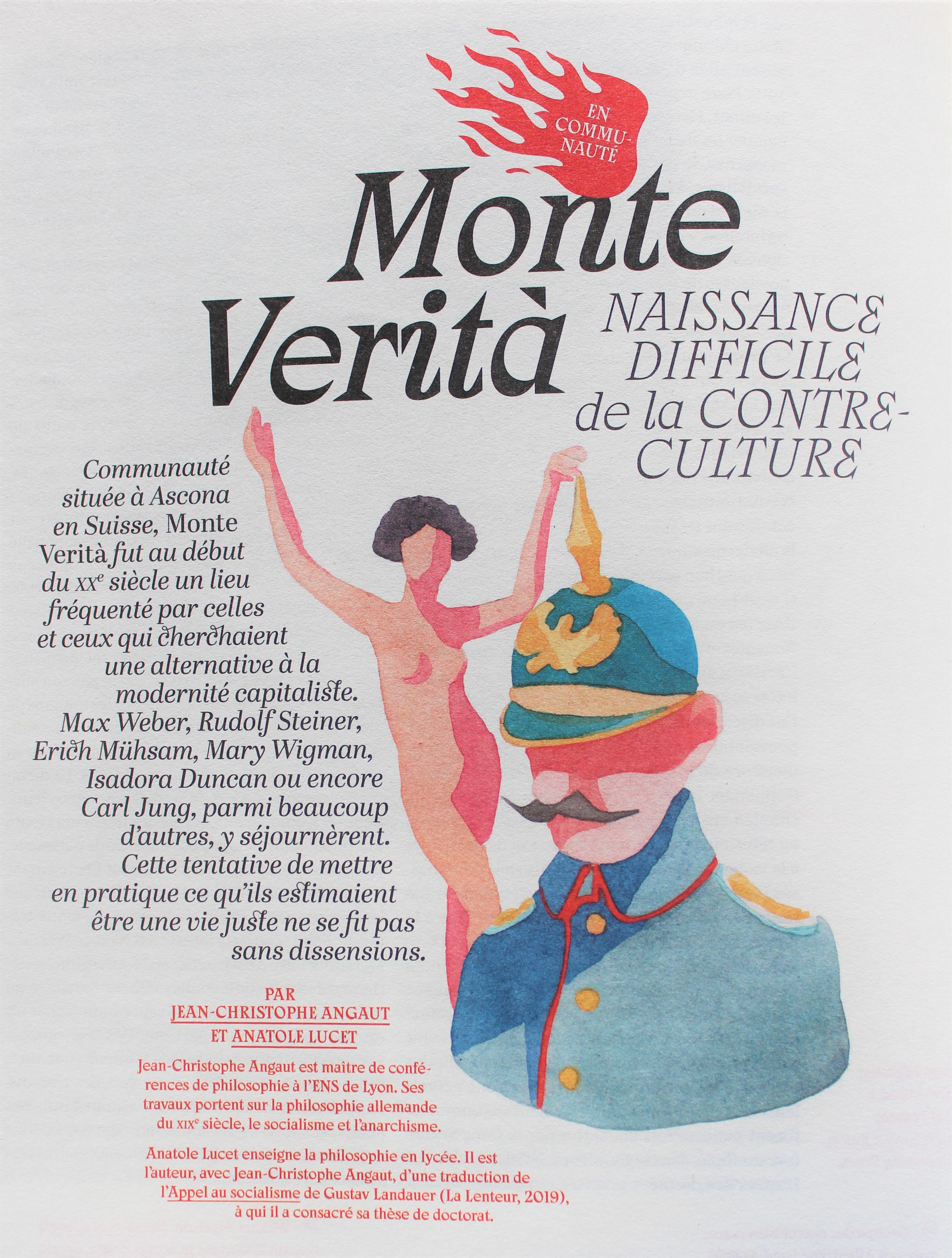
The pre-WWI counter-culture at Ascona in Switzerland is described by Jean-Christophe Angaut and Anatole Lucet. This alternative mecca at ‘Monte Verità’ attracted people as diverse as sociologist Max Weber, anarchist Erich Mühsam, dancer Isadora Duncan and psychoanalysts Otto Gross and Carl Jung. It reflected the emergence of anti-industrial resistance in the German-speaking world, say the authors. With left-wing political movements making no electoral headway, there arose “a cultural critique of capitalist modernity, along with a desire to rediscover or create more authentic ways of living”.
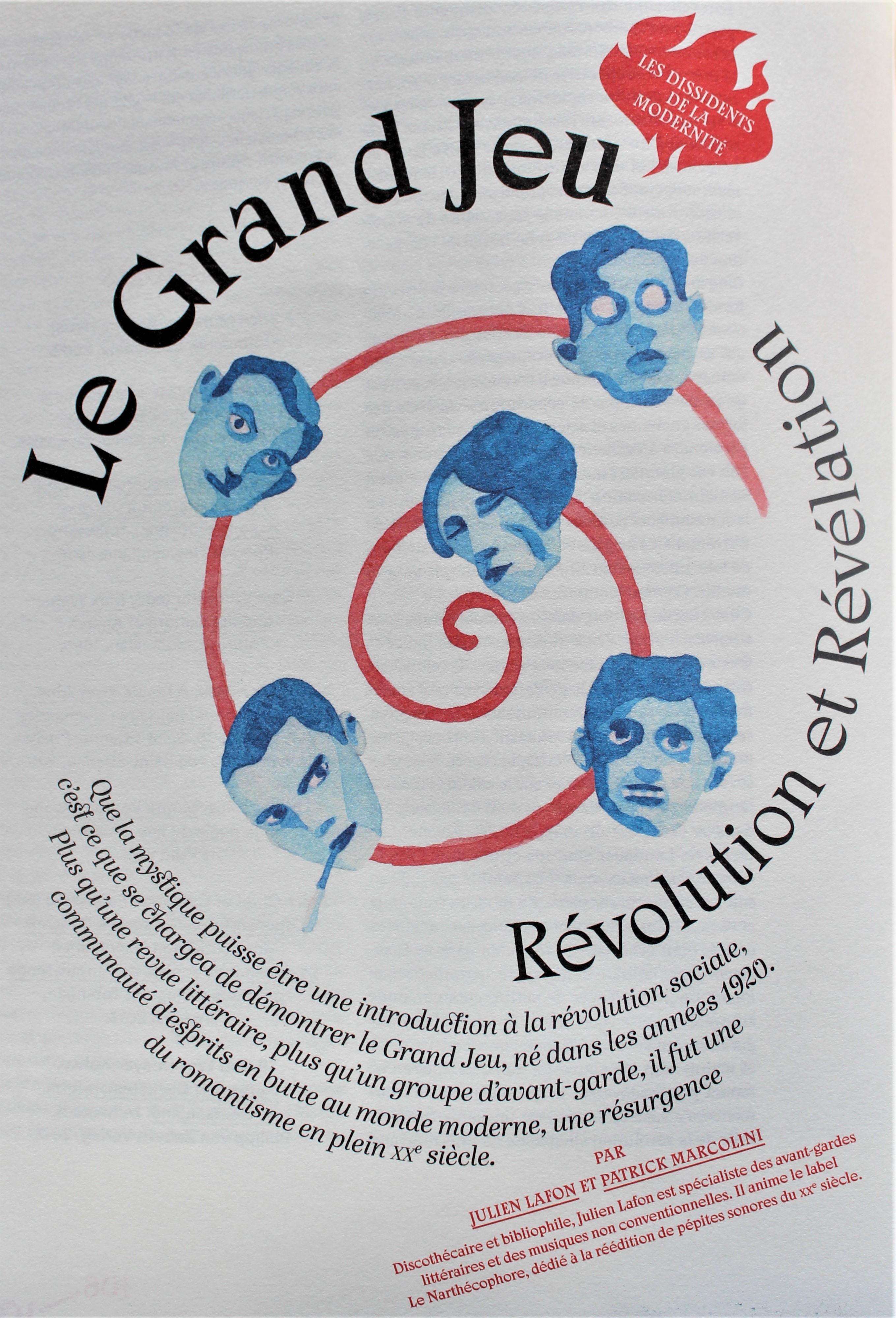
Julien Lafon and Patrick Marcolini explore the history of an unusual French journal, Le Grand Jeu. They explain that by 1930, its initial experimental metaphysics had evolved into what the Germans call Kulturkritik, “a ‘critique of culture’, or, better said, a critique of modern civilization as a whole”. Influenced by the likes of Sigmund Freud and René Guénon, Le Grand Jeu reached “the conviction that the West and the modern world are in crisis because they have broken with the metaphysical truth of which Eastern traditions (notably Hindu), offer the closest reflection”.
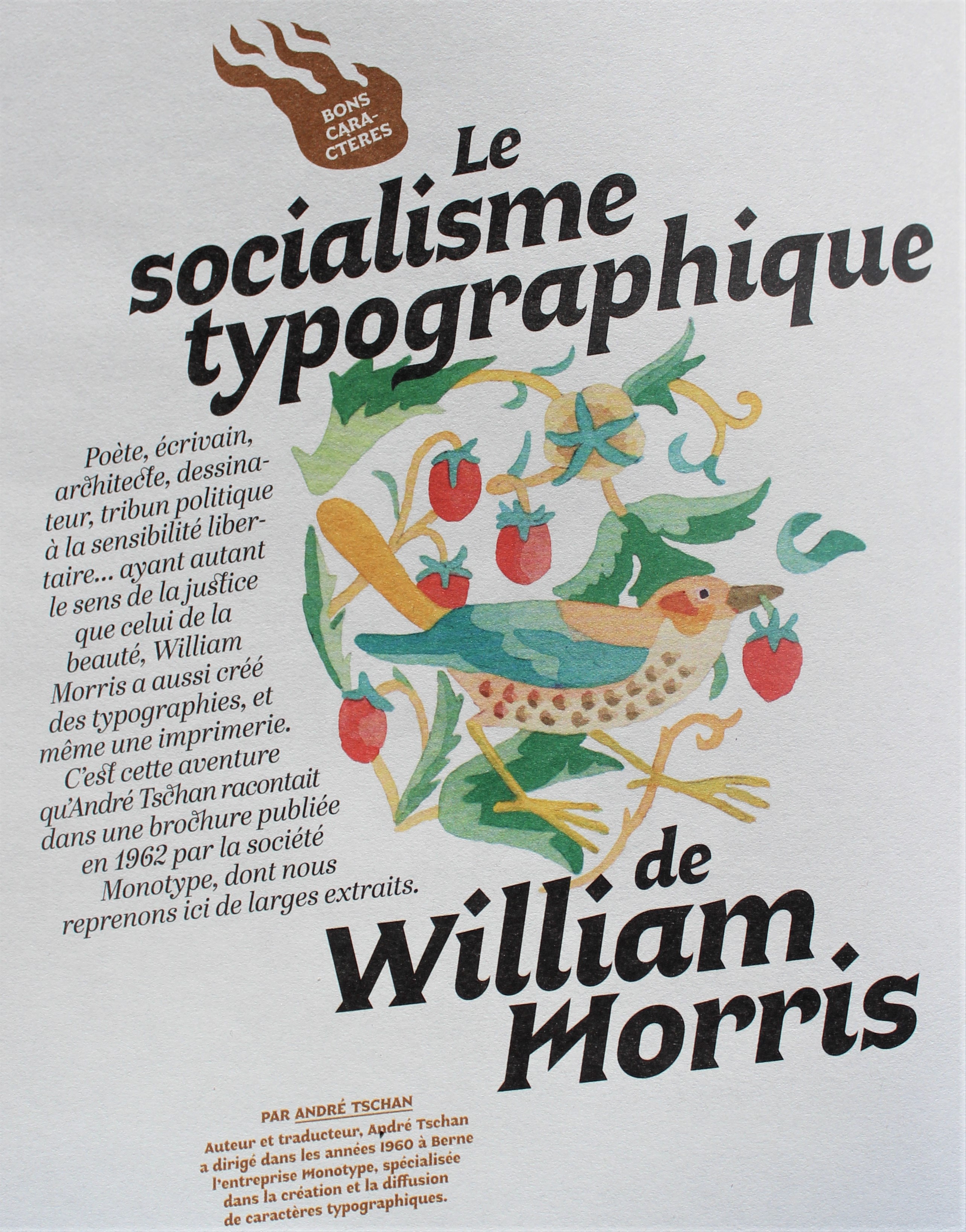
In an article written in the 1960s, André Tschan looks at William Morris, and particularly his typography. He describes the 19th century English radical’s life and work as “the most surprising epic imaginable, marrying art and morality, politics and a sense of beauty, the idealism of youth and an ongoing work for more justice”, culminating in an “aesthetic socialism”.
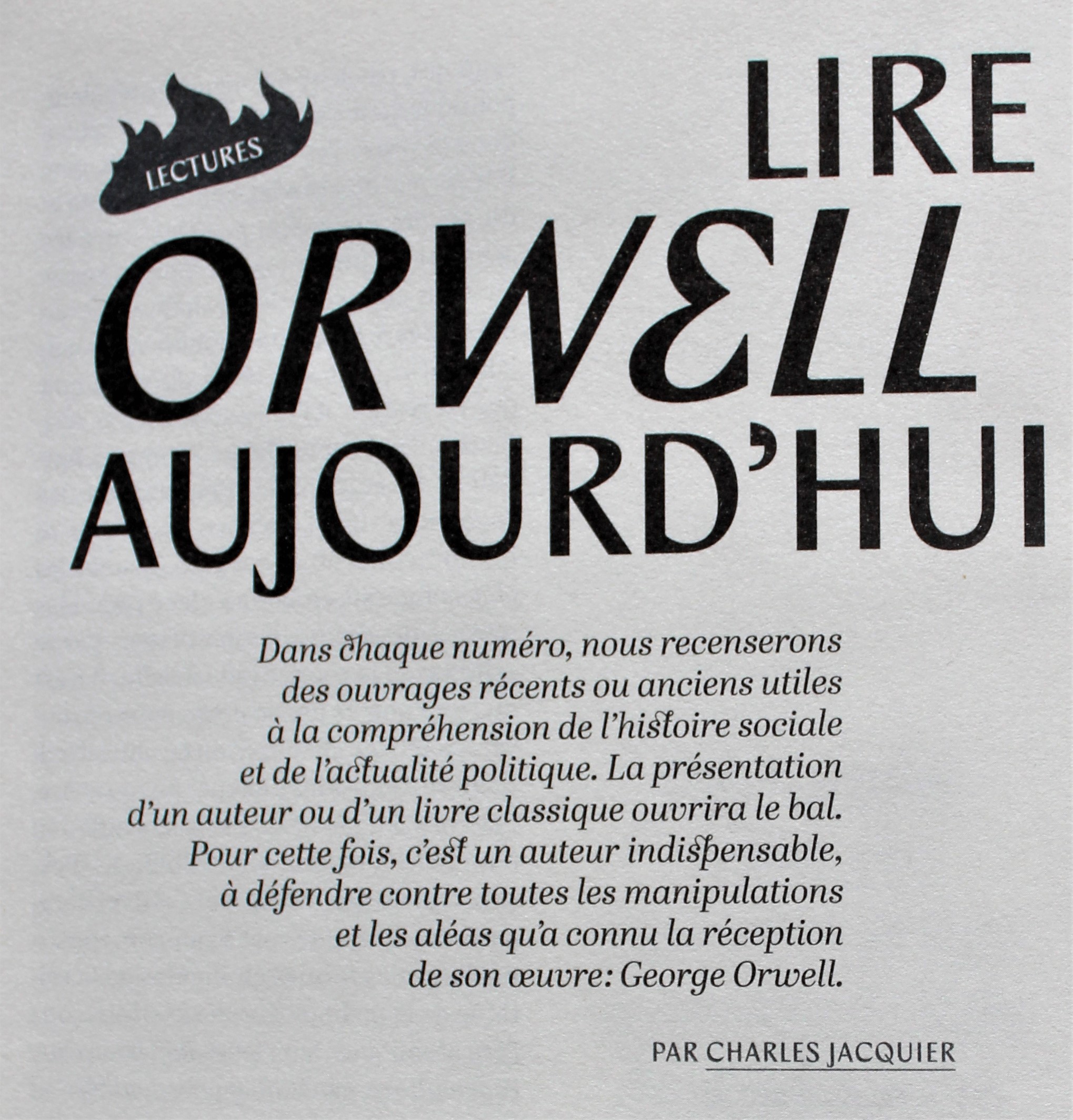
Charles Jacquier writes about the continuing relevance of George Orwell’s writing. Referring to the “doublethink” typical of today’s left, he stresses “the necessity of reading and re-reading Orwell with this in mind, at a time when ‘smelly little orthodoxies’ are combined with obvious irrationalism and inversion of values”. He quotes the writer Simon Leys, who says of Orwell: “Today, I can’t see that there is a single writer whose work could be of more urgent and immediate use to us”.
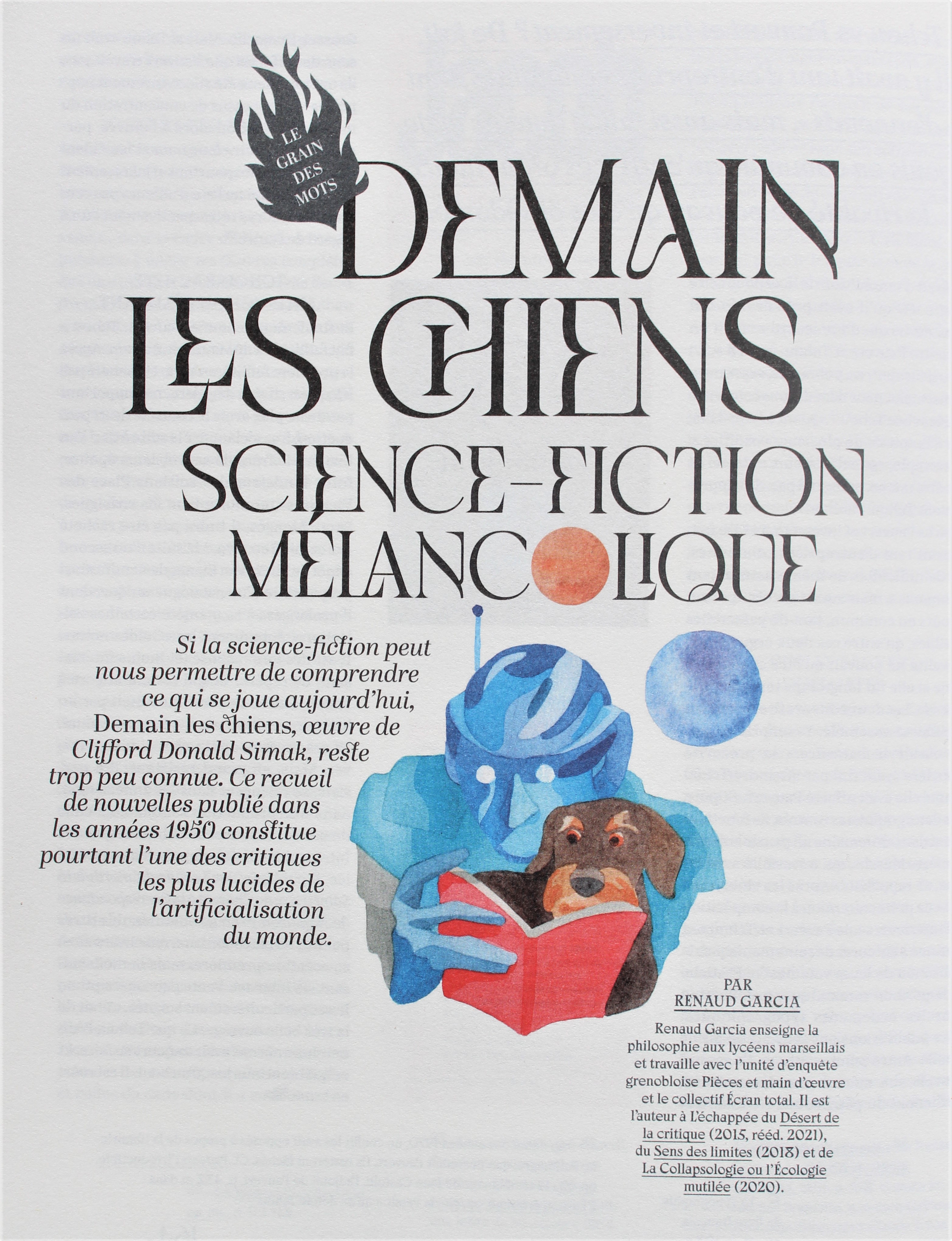
Renaud Garcia looks back at the mid-20th century science fiction of Clifford Donald Simak. The American painted a future in which “the disappearance of the human species becomes the background for all existence” and in which synthetic society has “ruined traditional conditions of life”. One story describes a future society of ants, who had been very powerful, “but their giant world-sized edifice suddenly collapses…”
5. Leo Tolstoy: an organic radical inspiration
The latest in our series of profiles from the orgrad website.
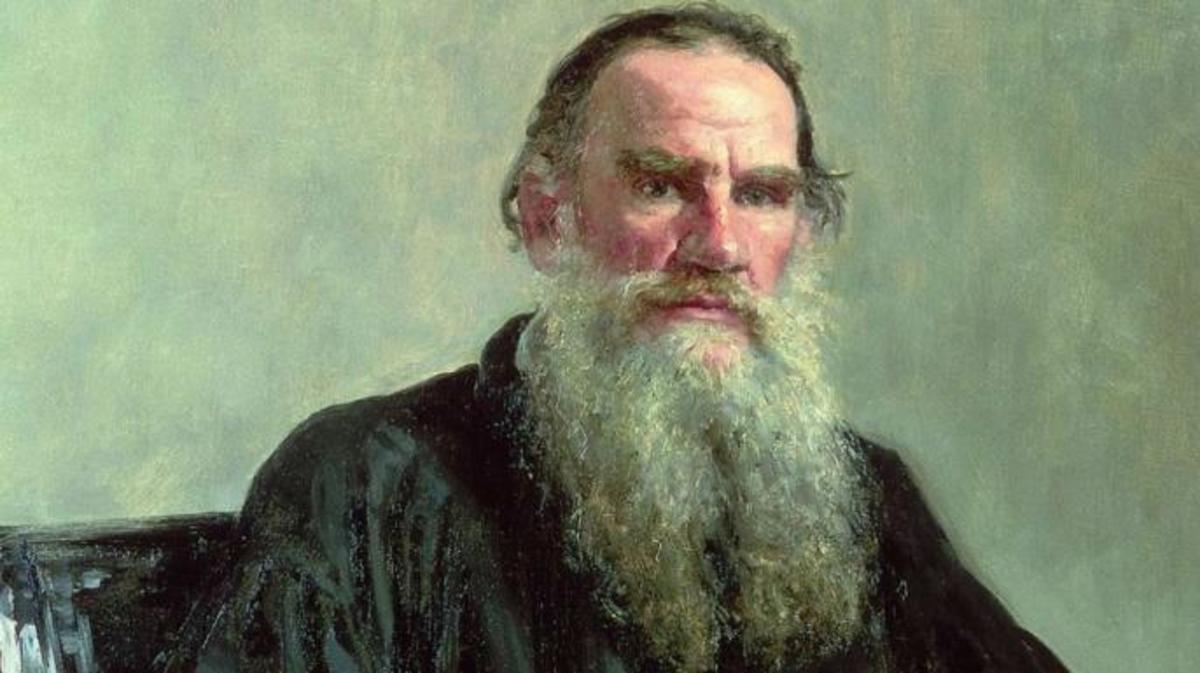
“We are spiritually connected on all sides – not only with people but with all living creatures”
Leo Tolstoy (1828-1910) was an enormously influential thinker and writer who called for people to live in a simple way, close to nature and free of the violence imposed by the state.
He did not term himself an anarchist, because he did not approve of the bomb-throwing approach favoured by much of the movement at the time, but his thinking belonged very much to that tradition.
His greatest novel, War and Peace, was influenced in title and content by a visit he made in Brussels to the French anarchist Pierre-Joseph Proudhon, who was just finishing his own book La guerre et la paix.
Tolstoy was also influenced by John Ruskin and Henry David Thoreau, with whom he shared a distrust of the myth of progress.
He condemned the factory system and, as Peter Marshall notes, repeatedly warned that “the Russian people should stay on the land, and avoid the industrial civilization of the West”. (1)
This vision had a powerful influence on Mohandas Gandhi, who applied it to his native India.
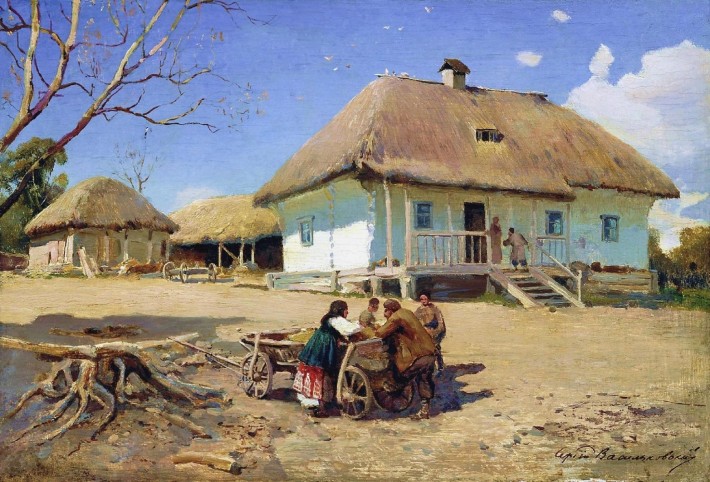
Explaining the roots of Tolstoy’s back-to-nature philosophy, George Woodcock writes: “His years as an officer in the Caucasus, in contact with mountain tribesmen and Cossacks living in their traditional manner, taught him the virtues of simple societies close to nature and far from urban corruption; the lessons he drew from his experience were very close to those which Kropotkin drew from similar encounters in Siberia”. (2)
This influence shines through in Tolstoy’s works. For instance, in the 1863 novel The Cossacks, he has the character Olenin declare: “Happiness is being with Nature, seeing Nature, and discoursing with her”. (3)
He did his best to live as a humble peasant himself, despite being born into the Russian aristocracy. He dressed simply, took up boot repairing and worked diligently in the fields of his own estate.
A life close to the land, with few needs, represented a moral ideal for Tolstoy. He wrote: “Every great thing is done in a quiet, humble, simple way – ploughing the land, building a house, breeding cattle, even thinking… Really great and true things are always simple and humble”. (4)
He added: “We should be satisfied with the small things in life. And the less we need, the fewer troubles we have”. (5)
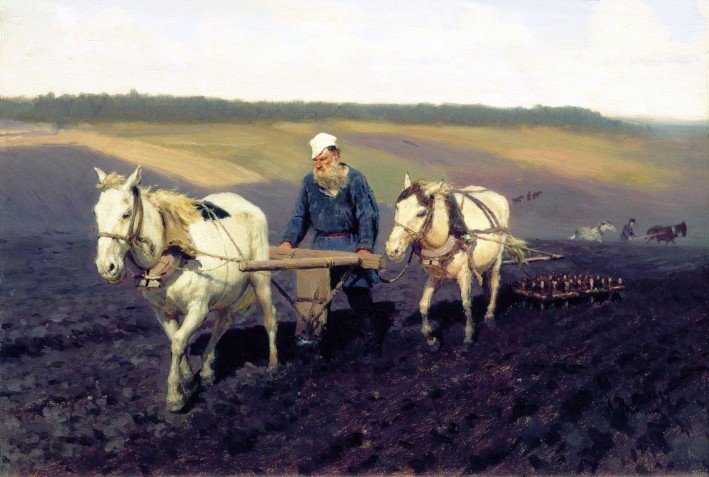
Tolstoy ploughing the land
Tolstoy advised people never to build, but rather to plant. The first approach was going against the grain of nature and thus risked being destroyed by her: “In the second, nature will help you, nurturing everything you have planted. The same applies to your spiritual life: things that are in harmony with eternal laws of human nature will grow”. (6)
He therefore believed that a person would thrive best if, as Woodcock puts it, “he rejects the more artificial manifestations of civilization and lives in an organic relationship with the world of nature”. (7)
The theme pervades his literature as well as his essays. War and Peace introduces peasant soldier Platon Karataev, a son of nature whose “words and actions flow from him evenly, inevitably, and spontaneously as fragrance exhales from a flower”. (8)
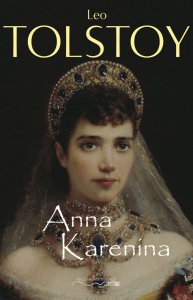 In Anna Karenina, Tolstoy makes a clear distinction, says Woodcock, “between town and country, between artificial urban civilization, which always tends towards evil, and natural rural life, which always tends towards good if it is left to follow its own courses. Anna Karenina, dominated by the city and corrupted by its unnatural standards, is morally and at last physically destroyed”. (9)
In Anna Karenina, Tolstoy makes a clear distinction, says Woodcock, “between town and country, between artificial urban civilization, which always tends towards evil, and natural rural life, which always tends towards good if it is left to follow its own courses. Anna Karenina, dominated by the city and corrupted by its unnatural standards, is morally and at last physically destroyed”. (9)
The artificial world is, of course, the world of money, in thrall to the mercantile “cosmovision” described by Georges Lapierre, and for Tolstoy this made it inherently corrupt.
He wrote: “In money, in the money itself, in acquiring money, in possessing money, there is something immoral… (10) If the rich person were truly virtuous, they would quickly stop being rich”. (11)
Tolstoy identified a fundamental injustice in a world where wealth and power were so entwined and so dominant: “There cannot exist any virtue in a society which is divided into two: the rich who rule and the poor who obey”. (12)
The earth was the general and equal possession of all humanity and therefore could not be the property of individuals, he argued: “The possession of land is as unjust as slavery when people own other people as their property”. (13)
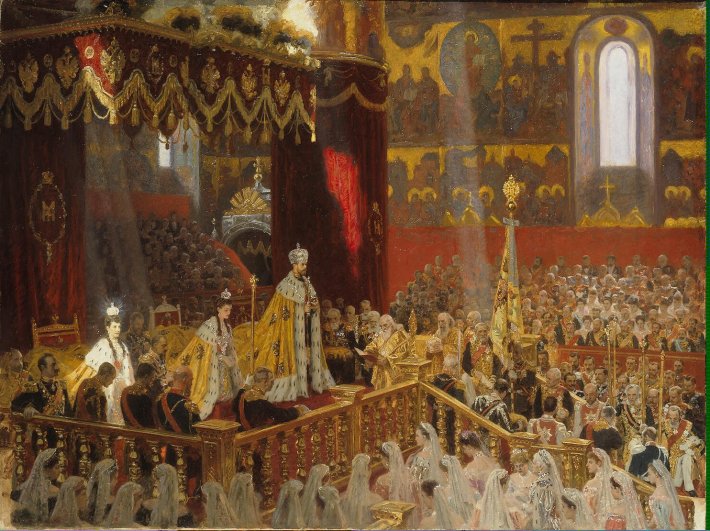
State pomp: the coronation of the Czar
Tolstoy’s reading of Proudhon and Peter Kropotkin helped him understand that this profound social injustice was only possible because of the existence of the state. He wrote: “The truth is that the state is a conspiracy designed not only to exploit, but above all to corrupt its citizens”. (14)
A powerful opponent of all forms of violence, Tolstoy saw clearly that the state, with all its laws and punishments, was inseparable from violence. It was nothing other than violence, disguised as legality.
He wrote in ‘The Slavery of Our Times’ in 1900: “Laws are rules, made by people who govern by means of organized violence, for non-compliance with which the non-complier is subjected to blows, to loss of liberty, or even to being murdered”. (15)
War was an extension of the inherent violence of the state, from which it, and the interests it defended, hoped to profit at the expense of human life.
Opponents of war therefore had to tackle the root cause: the state. He warned: “Until people reject the power of government to govern, to tax, to legislate and to punish, war will never stop. War is the consequence of the power of the government”. (16)
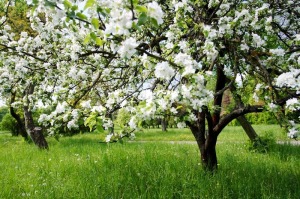 Like all authentic anarchists, Tolstoy was able to reject the lie that the state was necessary for social cohesion because he identified a deeper, underlying organic unity.
Like all authentic anarchists, Tolstoy was able to reject the lie that the state was necessary for social cohesion because he identified a deeper, underlying organic unity.
He wrote: “It only seems to us that we are different from each other. So a flower on a tree may think that it is a separate being, but all the flowers are parts of the blossoming of one apple tree, and they all come from the one seed”. (17)
As with his position on the immorality of money-based society, Tolstoy’s anarchism here merges with his spiritual beliefs.
“Whether they know this or not, all creatures are inseparably connected”, (18) he wrote. “We are spiritually connected on all sides – not only with people but with all living creatures”. (19)
Tolstoy was a Christian, although he promoted, as Marshall points out, such a “highly unorthodox version of Christianity” (20) that he was eventually excommunicated by the Russian Orthodox Church.
His religion was based not on official Christian dogma but on the principle of “reason” – it was close, says Marshall, to the spirituality of “the mystical anarchists of the Middle Ages” (21) and of the 17th century English revolutionary Gerrard Winstanley.
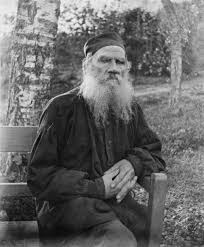 For Woodcock, Tolstoy’s concept of a binding force of “love” was in fact close to Kropotkin’s notion of “mutual aid”, (22) amounting to an awareness that, in Tolstoy’s words, “we are all members of one great body”. (23)
For Woodcock, Tolstoy’s concept of a binding force of “love” was in fact close to Kropotkin’s notion of “mutual aid”, (22) amounting to an awareness that, in Tolstoy’s words, “we are all members of one great body”. (23)
Tolstoy insisted that people had to overcome the separation from the natural world which was promoted by artificial society. He urged readers of his Calendar of Wisdom: “Distance yourself from everything that interferes with your perception of a special connection between you and all living creatures”. (24)
According to the perennial wisdom of what Theodore Roszak calls the Old Gnosis, the grasping of our unity with the natural world and the cosmos beyond also involves the discovery of our true inner selves.
It was crucially important for Tolstoy that people could access this inner authenticity and derive their thinking from the light within rather than from secondhand sources.
“Some people live and act according to their own thoughts, and some according to the thoughts of other people. This is one of the major distinctions among people”, (25) he stressed.
“A thought can propel your life in the right direction only when it answers questions asked by your soul. A thought which is borrowed from someone else and then accepted by your mind and memory does not influence your life much and may lead you in the wrong direction”. (26)
Delving deeper than the surface of our so-called “personality” to understand the purpose of our own life was both enlightenment and freedom, said Tolstoy.
 To achieve this, he explained, we needed to make proper use of our intellect and ignore the commonplace belief that “mankind lives like a herd of cattle, that man is guided by economic considerations alone, and that his intellect is given to him merely for amusement”. (27)
To achieve this, he explained, we needed to make proper use of our intellect and ignore the commonplace belief that “mankind lives like a herd of cattle, that man is guided by economic considerations alone, and that his intellect is given to him merely for amusement”. (27)
It was only this way, by using our intellect to guide us on a moral path through life, that we could challenge the tyranny of state, violence, money and exploitation.
Tolstoy did not believe that the corruption of artificial modern society could be overcome by purely political or physical means.
But a spiritual renewal, in which humanity cast off all the lies with which it had been chained and refused to obey its slavemasters, could sweep the world and change everything.
He wrote: “As a fire lit on a prairie or in a forest will not die out until it has burned all that is dry and dead, and therefore combustible, so the truth, once articulated in human utterance, will not cease its work until all falsehood, appointed for destruction, surrounding and hiding the truth on all sides as it does, is destroyed. The fire smolders long; but as soon as it flashes into flame, all that can burn burns quickly”. (28)
Video link: Leo Tolstoy (44 mins)
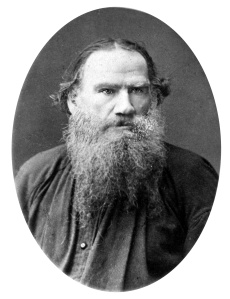
1. Peter Marshall, Demanding the Impossible: A History of Anarchism (London: Fontana Press, 1993) p. 380.
2. George Woodcock, Anarchism (London: Penguin, 1979) p. 209.
3. Leo Tolstoy, The Cossacks, cit. Woodcock, Anarchism, p. 213.
4. Leo Tolstoy, A Calendar of Wisdom: Wise Thoughts for Every Day, trans. Peter Sekirin (London: Hodder and Stoughton), 1998, p. 114.
5. Tolstoy, A Calendar of Wisdom, p. 144.
6. Tolstoy, A Calendar of Wisdom, p. 327.
7. Woodcock, Anarchism, p. 212.
8. Leo Tolstoy, War and Peace, cit. Woodcock, Anarchism, p. 214.
9. Woodcock, Anarchism, p. 213.
10. Tolstoy, A Calendar of Wisdom, p. 58.
11. Tolstoy, A Calendar of Wisdom, p. 193.
12. Tolstoy, A Calendar of Wisdom, p. 105.
13. Tolstoy, A Calendar of Wisdom, p. 261.
14. Leo Tolstoy, letter to V.P. Botkin, 1857, cit. Marshall, p. 364.
15. Leo Tolstoy, ‘The Slavery of Our Times’, 1900, The Anarchist Reader, ed. by George Woodcock, (Glasgow: Fontana, 1986) p. 118.
16. Tolstoy, A Calendar of Wisdom, p. 330.
17. Tolstoy, A Calendar of Wisdom, p. 28.
18. Tolstoy, A Calendar of Wisdom, p. 155.
19. Tolstoy, A Calendar of Wisdom, p. 229.
20. Marshall, p. 362.
21. Marshall, p. 382.
22. Woodcock, p. 208.
23. Tolstoy, A Calendar of Wisdom, p. 70.
24. Ibid.
25. Tolstoy, A Calendar of Wisdom, p. 219.
26. Tolstoy, A Calendar of Wisdom, p. 9.
27. Leo Tolstoy, ‘Two Wars’, Tolstoy’s Writings on Civil Disobedience and Non-Violence (New York: Mentor, 1968), p. 22.
28. Leo Tolstoy, ‘The Beginning of the End’, Tolstoy’s Writings on Civil Disobedience and Non-Violence, p. 14.
“The ‘Great Reset’ was intended to transition to a new form of capitalism: surveillance capitalism. In other words, a kind of capitalism whose driving force was the monetization of data collected by surveilling the behavior of citizens, who would receive nothing in return for supplying capital with all this valuable information”. So writes Julien Charles in a thoughtful March 5 article on the OffGuardian site.
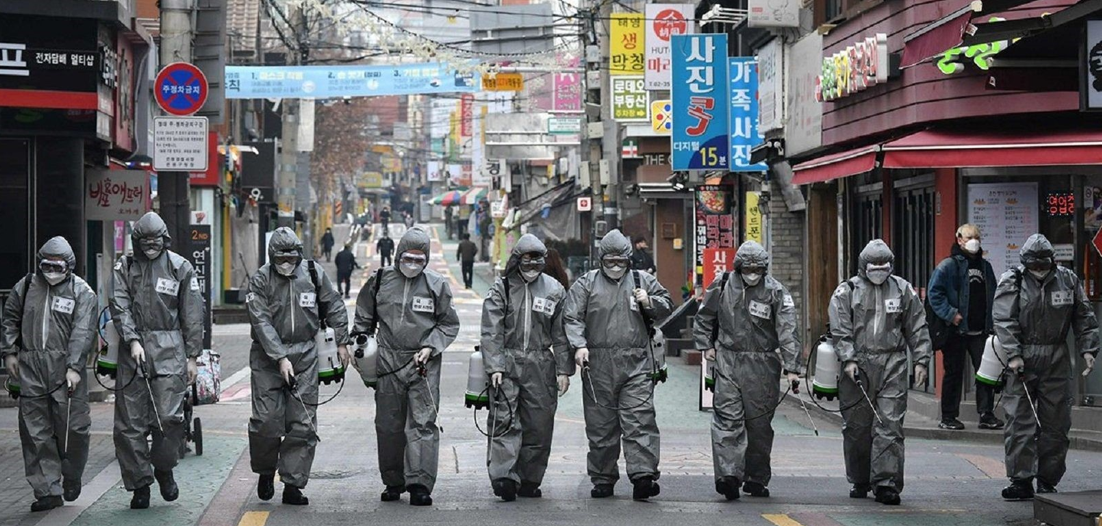
* * *
An important piece from Grayzone, by Jeremy Loffredo and Max Blumenthal, examines the way in which digital vaccine passports pave the way for unprecedented surveillance capitalism and are being pushed by “mega-corporations, international finance institutions, and billionaire-backed private foundations”.
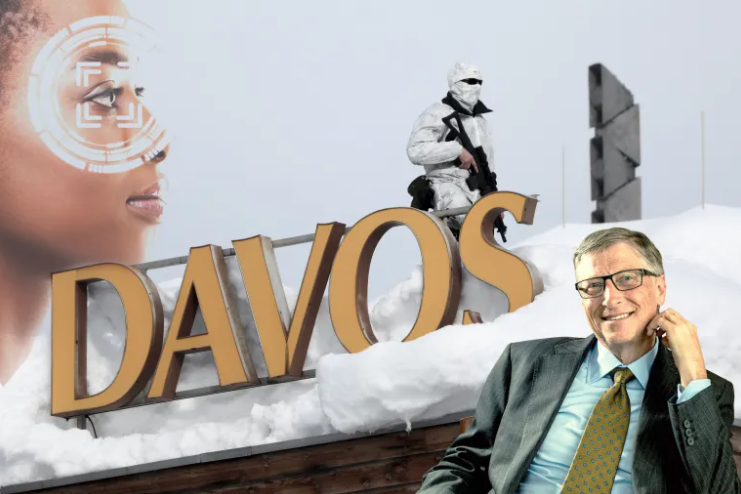
* * *
The digital ID agenda serves as the linchpin of the entire global enslavement grid being rolled out under the so-called Great Reset, explains James Corbett in a March 12 video, appropriately entitled “The Global Digital ID Prison”.
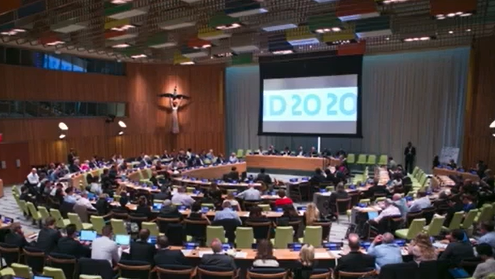
* * *
The Right Sector in Ukraine are “full-blown neo-Nazis”, warns Iain Davis of In This Together. “They continue to receive the unwavering support of NATO aligned governments and, in turn, these governments serve a globalist network of public-private partnerships”.
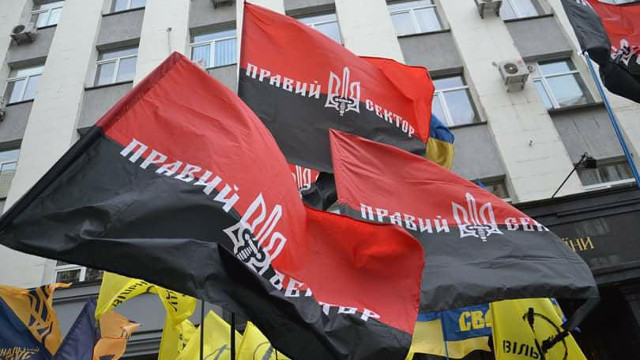
* * *
Is the WEF, rather than being the vangard of a “New World Order”, actually a remnant of crumbling US imperialism, desperately trying to stay relevant and keep control? Johnny Vedmore takes a close look at Klaus Schwab’s transaltantic connections in a new investigation on the Unlimited Hangout site.
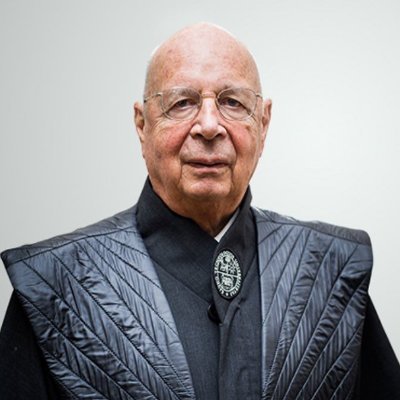
* * *
“The left needs to stop being suspicious about the word ‘freedom’ and it also needs to stop running an ideological purity ruler over the grass-roots makeup of the Covid freedom movement”, writes Phil Shannon of the Left Lockdown Sceptics. Adds Brendan O’Neill in a short video about the Canadian truckers’ revolt and the Great Reset: “Whenever working people rise up against the elites, the left are there at the sidelines calling them ‘scum’ and ‘fascists’ and ‘trash'”. More thoughts on this issue here.
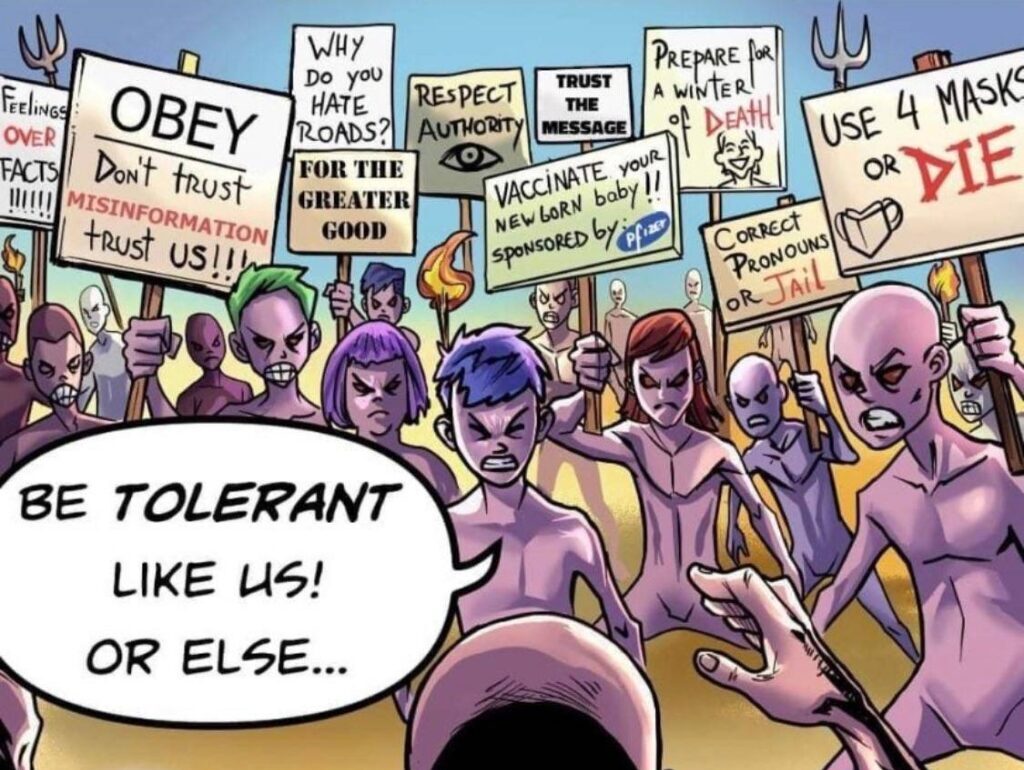
* * *
Lovers of the English countryside, who have been struggling for the best part of a decade against the threat of fracking, breathed a sigh of relief in February. Energy firm Cuadrilla, who met spirited public resistance at Balcombe and elsewhere, has announced that it is permanently abandoning its UK shale gas sites.
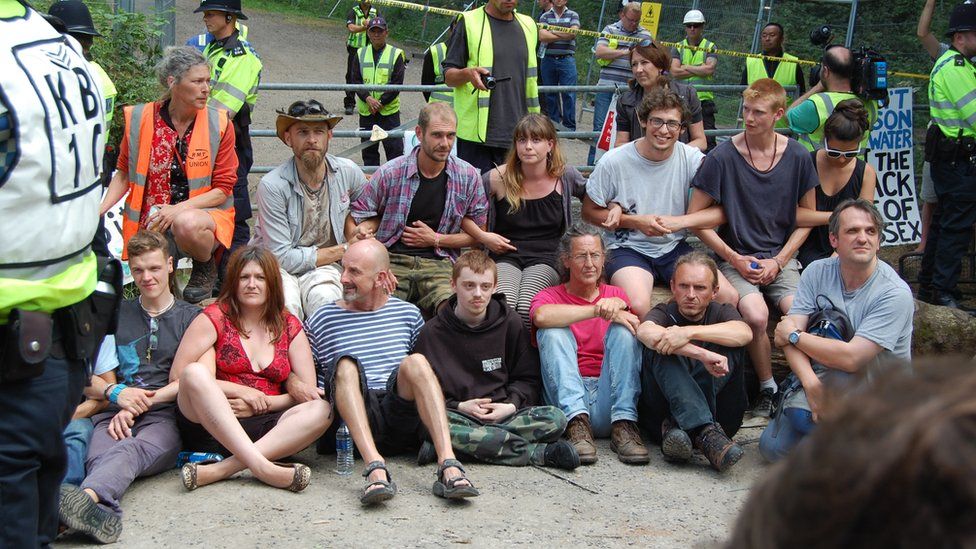
* * *
Ever heard of a “holobiont”? An intriguing article by Ugo Bardi explains that it is a living creature formed of independent, but cooperating, organisms. This wide-ranging concept, he adds, “can explain many things not just about the ecosystem of our planet, but also about human society”.
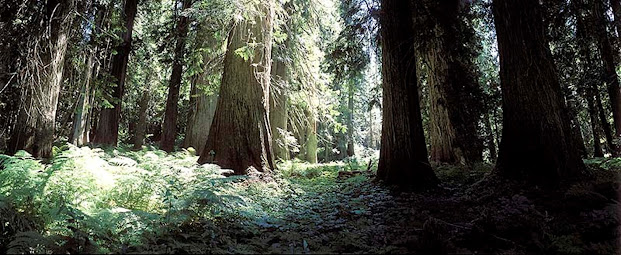
* * *
Is nature fighting back against the greenwashed industrial technology supposedly “saving” it? In Japan, crows have been sabotaging solar panels. “The crows are experts at placing stones or other garbage just so that they stay on top of the panel, soon causing overheating and destruction or permanent damage”.

* * *
“Such as I am, to my own amazement, I stand – so far as I can discern – alone in conviction, in hope and in resolution, in the wilderness of this modern world”. John Ruskin.

(For many more like this, see the Winter Oak quotes for the day blog)
—–
If you like this bulletin please tell others about it. Subscribe by clicking the “follow” button.
—–
Back Issues
Follow Winter Oak on Twitter at @WinterOakPress

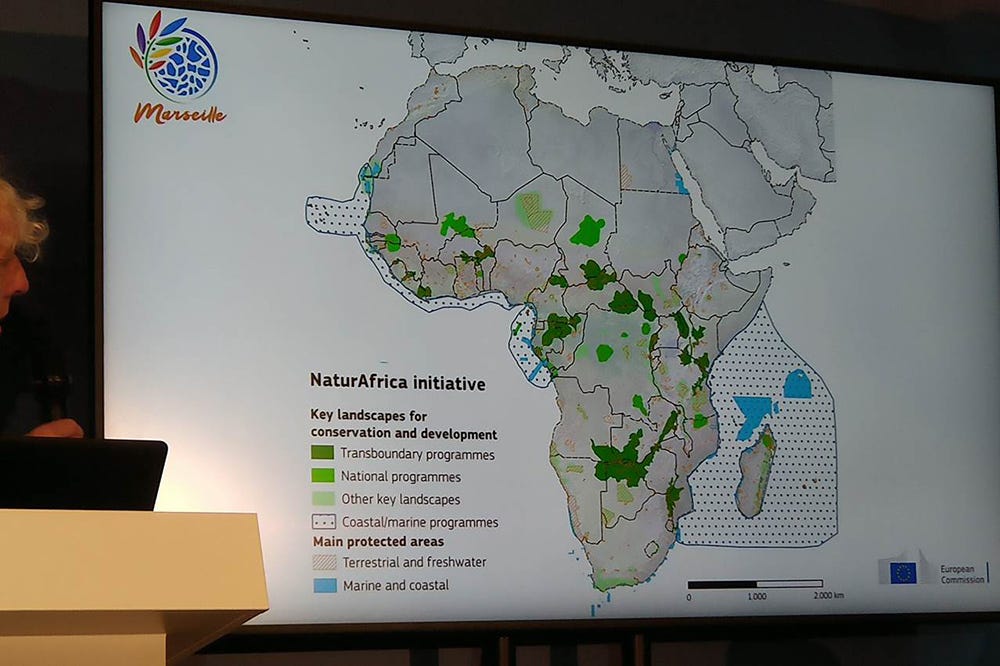


Looks excellent overall, thanks, particularly like the Tolstoy and associated anti-industrialism voices sections (4 and 5).
One comment about Johnny Vedmore’s piece about Klaus Schwab, linked to in part 6. Are you throwing your “Special Correspondent” who wrote about “Great Reset’s Next Phase: War” under the bus? 🙂 I have criticisms of it too. but there are some glaring problems with Vedmore’s article. He fails to mention that Henry Kissinger, credited as one of Schwab’s mentors, has also been a good friend of Putin for over two decades, see an article about this in Politico, December 2016. Putin has for two years been pushing the “pandemic” fraud, right to forcing Russians en masse, children included, to get themselves shot up with genetically engineered poisons. As he’s still carrying this on, how could he be against The Great Reset? (unless you believe there really is a “pandemic” going on. Seriously?) Russia’s oligarchs are strongly connected to the Great Reset. See this interview for an excellent discussion by Riley Waggaman, who lives in Moscow.
https://tessa.substack.com/p/russia-covid?fbclid=IwAR3NA19s090NFsRr8zKTjSV4jaA2FHjv0CV2btRvJLiptftz_azrJmyMGtk&utm_source=url
Are Russian Oligarchs Best Friends with Klaus Schwab? A Conversation with Riley Waggaman. Is my old homeland a 4IR lab? Tessa Lena, 2/25/22. Links.
These oligarchs included Herman Gref, the Putin-appointed head of the Russian state bank, Sberbank, who is on the WEF board of trustees. Also look up Pavel Luksha, who runs Global Education Futures, the 4IR program to transform education all over the world. The role of China’s elites in 4IR is even more blatant. And WEF notables have made no secret of their desire to shift to a more multi-polar world order. “Correspondent”‘s article could have used more specific references like these. But in my humble opinion, Vedmore’s analysis is typical of the Hegemonism school of thought, which sees us peons as having no role aside from cheering on major powers contesting the current hegemonic power, the US, for a share of power, because these analysts see the US ruling elite as the enemy, and not global capitalism. Is that the best we can hope for, nicer masters?
LikeLiked by 1 person